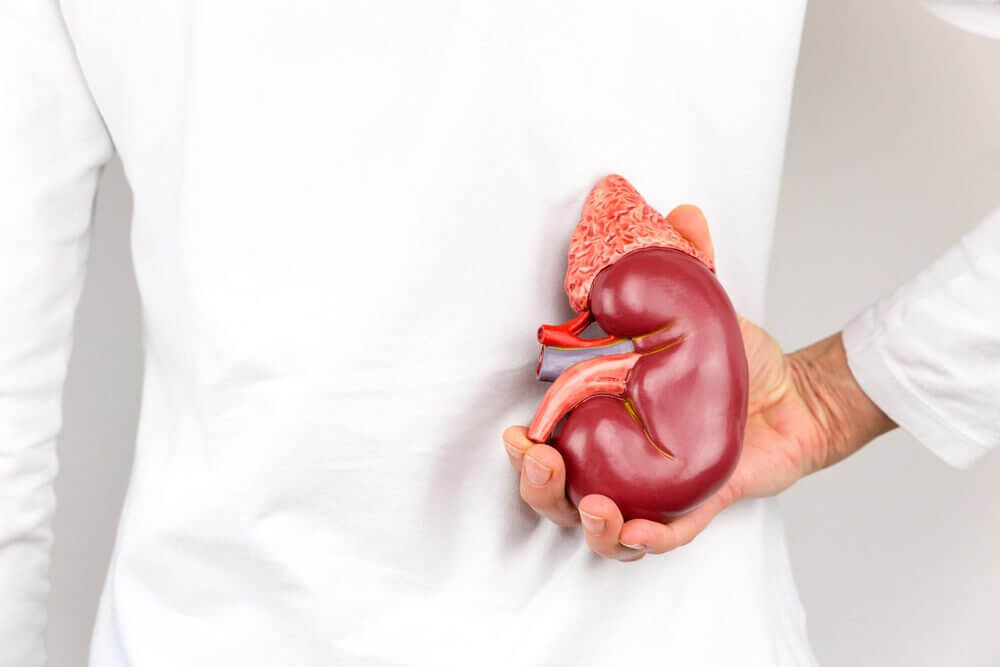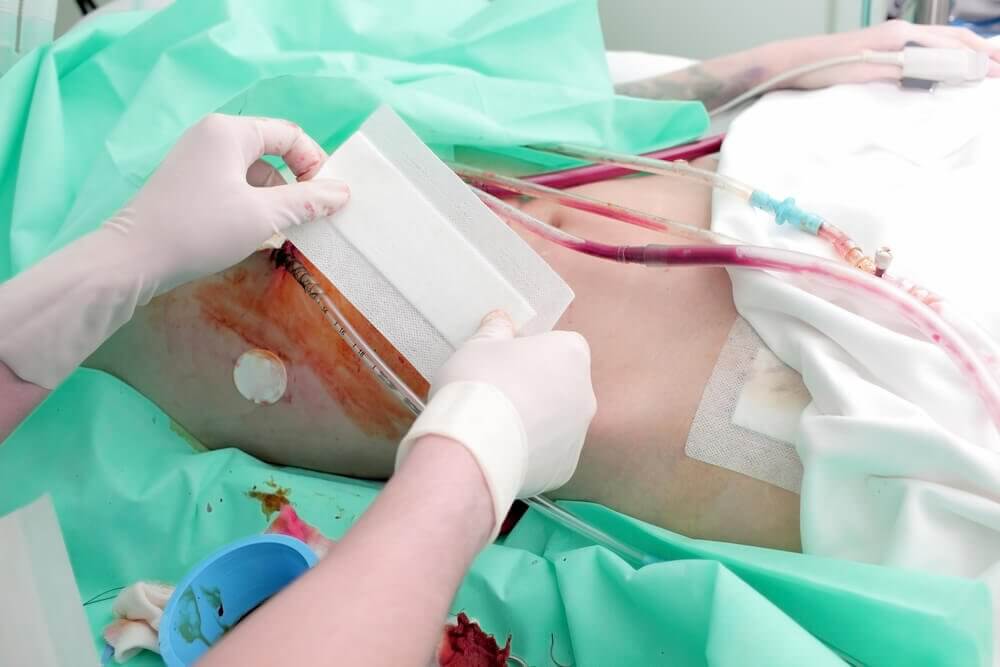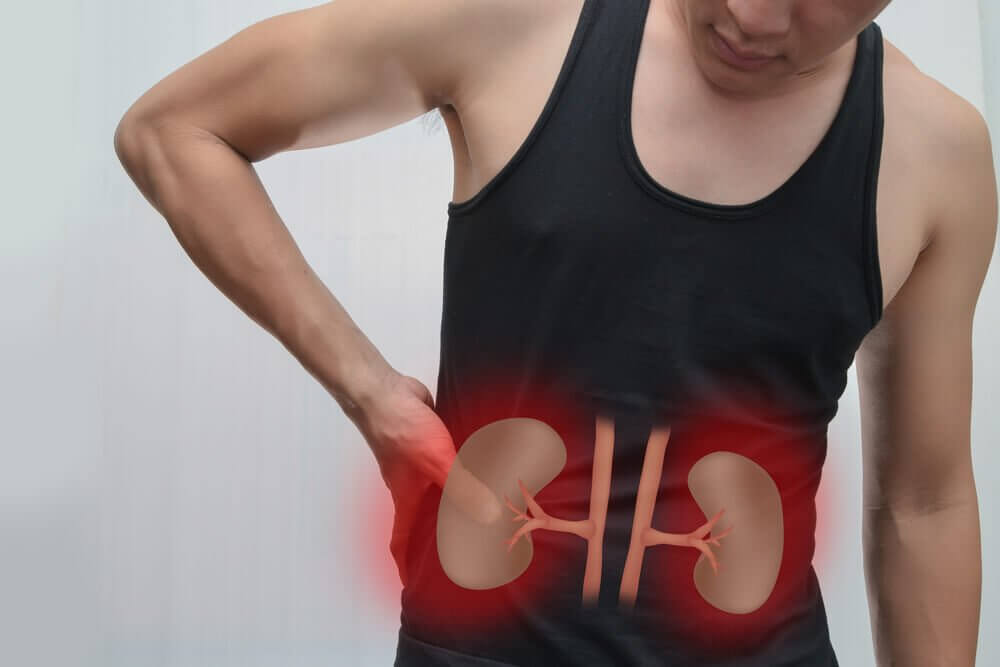5 Things You Should Know About Kidney Transplants


Reviewed and approved by the doctor Maricela Jiménez López
Kidneys are the organs that we probably don’t ever think much about until there is a problem. However, it’s good to remember that these organs play a vital role filtering waste products from the body. Therefore, when the kidneys stop working properly, a transplant is needed. In this article, we’ll tell you a few things you should know about kidney transplants.
What Do Kidney Transplants Consist Of?
A kidney transplant is a surgical intervention when a kidney that has stopped working correctly is swapped for a healthy one.
A healthy kidney can take up the function of two dysfunctional kidneys. As a result, it’s possible to live with just one kidney if you’re healthy.
As a result, only people who have two kidneys in perfect condition can be kidney donors.
1. Types of Kidney Donors

When a kidney transplant takes place, the new organ could come from any one of a number of different types of donor:
- A living family member, such as one of the parents, a sibling, or a son or daughter. These people are the ones who have the greatest chance of being compatible because they’ll share some of the same genetics.One of the greatest problems is that anyone with a serious illness is immediately discounted.
- A donor who is not related to the patient, such as a friend or spouse. Although it’s less common, it is a viable option when family donors are not available.
- A deceased donor. This donation comes from someone who has recently died who did not have any kidney problems and who has expressly stated that they wish for their organs to be donated. The problem is there’s a long waiting list and compatibility is never guaranteed. Furthermore, donations are not common in some countries.
2. Procedure for the Transplant Recipient
Since this procedure is complex, there are certain steps that need to be carried out. If your doctor has suggested this surgery, be sure to ask them about any doubts you have. The basic procedure is as follows:
- The receiver is given a general anaesthetic before surgery.
- Then the surgeon makes an incision in the lower abdomen and the new kidney is placed inside the lower abdomen.
- Then, they connect the artery and vein of the new kidney to the artery and the vein by the pelvis.
- The surgeon will then connect the urethra to the bladder.
- Finally, the surgeon will make sure that blood is circulating around the new kidney and that it is able to produce urine just like a healthy kidney.
Although the surgery takes only a few hours, it will take many weeks for the new kidney to begin to function.
3. Kidney Transplant Complications

Kidney transplants can suffer some complications. The most common are:
1. Transplant rejection. This can be one of two types:
- Hyperacute rejection. This begins a few minutes or days after the transplant and requires an immediate operation to remove the new kidney.
- Acute rejection. This is when, weeks after the surgery, there is filtration of inflammatory cells in the transplanted kidney tissue. This problem is treated with corticoids, as long as it’s not caused by the immune response of the body against the new kidney. There currently exists no effective treatment for this second type.
2. Infections caused by the reduction of the body’s defences caused by immuno-suppressant medication.
3. Risks of cancer as a result of immuno-suppressant drugs.
4. Imbalance in calcium levels.
5. Side effects of medications: digestive problems, hair loss, and diabetes type-2, amongst others.
4. Post-Operative Care after a Kidney Transplant
If you require a kidney transplant, it’s most likely because of an unhealthy lifestyle. To reduce problems in the future, it’s important to make real changes:
Nutrition
It’s necessary to maintain a healthy and balanced diet after a kidney transplant. It’s the only way to be sure of a complete recovery.
Follow your doctor’s instructions and seek advice from a nutritionist to determine the right foods and portion sizes. Remember, if you have another illness, you’ll still need to bear these things in mind.
Exercise
After a kidney transplant, it’s quite normal to feel weak as a result of losing muscle mass during the time after the operation. As a result, after the operation you doctor will recommend an exercise or physiotherapy program.
Make sure you don’t overdo it, nor drop the routine. At the beginning you will feel tired, but with time your body well return to its normal condition.
5. Benefits of a Kidney Transplant

Some people are afraid of surgery and instead opt for dialysis. However, there are some good reasons to choose surgery:
- A transplant guarantees better quality of life.
- Kidney transplants allow the patient to live for approximately 17 years after the operation.
- If you opt for dialysis, the average life expectancy is just over 7 years and requires 10 or more hours per week being connected to equipment for your treatment.
All cited sources were thoroughly reviewed by our team to ensure their quality, reliability, currency, and validity. The bibliography of this article was considered reliable and of academic or scientific accuracy.
- Martín, P., & Errasti, P.. (2006). Trasplante renal. Anales del Sistema Sanitario de Navarra, 29(Supl. 2), 79-91. http://scielo.isciii.es/scielo.php?script=sci_arttext&pid=S1137-66272006000400008&lng=es&tlng=es.
- Oppenheimer F. Trasplante de donante vivo. En: Arias M, Campistol JM, Morales JM, editores. Manual de trasplante renal. 1 ed. Madrid: Grupo 2 Comunicación Médica; 200:. 257-273.
- Kasiske BL, Cangro CB, Hariharan S, Hricik DE, Kerman RH, Roth D et al. The evaluation of renal transplant candidates: clinical practice guidelines. Am J Transplant 2001; 1(Supl 2): 1-95.
- MedlinePlus. Transplante de riñón. https://medlineplus.gov/spanish/ency/article/003005.htm
- National Kidney Foundation. Transplante de riñón. https://www.kidney.org/es/atoz/content/kidneytransnewlease
- American Kidney Fund. Preparación para el transplante. https://www.kidneyfund.org/en-espanol/trasplantes-de-rinon/preparacion-para-el-trasplante/#la_cirugia_de_trasplante
- National Institutes of Diabetes and Digestive and Kidney Diseases. Riñones. https://www.niddk.nih.gov/health-information/informacion-de-la-salud/enfermedades-rinones/rinones-funcionamiento
- Revista de Nefrología. Complicaciones múltiples post-trasplante renal. https://www.revistanefrologia.com/es-complicaciones-multiples-post-trasplante-renal-articulo-X0211699504030130
This text is provided for informational purposes only and does not replace consultation with a professional. If in doubt, consult your specialist.








